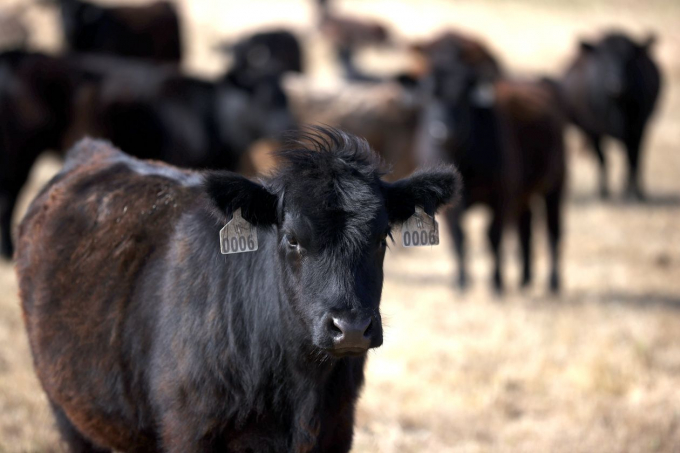November 25, 2025 | 11:45 GMT +7
November 25, 2025 | 11:45 GMT +7
Hotline: 0913.378.918
November 25, 2025 | 11:45 GMT +7
Hotline: 0913.378.918

PHOTO: JUSTIN SULLIVAN/GETTY IMAGES
The American meatpacking industry faces stricter oversight in Washington, as lawmakers and regulators push an overhaul of the $213 billion sector following complaints about meat companies’ alleged influence over markets and farmers
The push by lawmakers and regulators follows complaints about meat companies’ alleged influence over markets and farmers.
Andy Green, the USDA’s senior adviser for fair and competitive markets, said some of farmers’ troubles stem from a handful of companies controlling the bulk of U.S. meat processing.“America’s food industry has a monopoly problem,” said Mr. Green, a former senior fellow for economic policy at the think tank Center for American Progress who joined the USDA earlier this year. “There’s a lot that we want to do to bring competition back to the market.”
Newsletter Sign-upA pre-markets primer packed with news, trends and ideas. Plus, up-to-the-minute market data.PREVIEWSUBSCRIBENearly three-quarters of the U.S. beef supply is processed by JBS, Tyson, Cargill and National Beef Packing Co. In pork, Smithfield Foods Inc., JBS and Tyson represent about 60% of the market, and in chicken, the five largest players—including Tyson and JBS subsidiary Pilgrim’s Pride—handle 60% of the country’s wings, breast meat and other poultry products, according to industry estimates.
Spokesmen for Tyson, Cargill, JBS and Smithfield declined to comment. A National Beef spokesman didn’t respond to requests for comment.The North American Meat Institute, which represents meat companies, is pushing back against tighter regulations for the industry. Mark Dopp, the group’s head of regulatory affairs, said the USDA’s planned rules would narrow farmers’ options to sell livestock, enable frivolous lawsuits and potentially boost supermarket prices for burgers and chicken breasts. headtopics.com
The meat industry has faced previous attempted overhauls, Mr. Dopp said. The USDA under the Obama administration proposed similar rules that were later blocked by Congress and court challenges, he said: “They were a bad idea then, and they’re still a bad idea.”
The big four beef processors’ share of the cattle market has held roughly steady for 25 years, according to data compiled by the meat institute, while some cattle producers were earning record profits as recently as 2014. Recent low prices for cattle ranchers showed fundamental market forces at work, Mr. Dopp said, as the disruptions that closed meat plants left a greater supply of cattle on the market, pushing down livestock prices.
Mr. Green of the USDA said those episodes showed the vulnerabilities of concentration, and the need to reduce farmers’ and consumers’ reliance on a small number of major companies. The USDA this month said it would provide grants and loans to support new and smaller meat-processing plants as part of a $4 billion program to strengthen the U.S. food system.
In North Carolina, retired chicken farmer Reid Phifer said he had been pushing the USDA and federal lawmakers for years to strengthen what he said were needed protections for farmers who raise poultry for meatpackers.A so-called tournament system, used by some chicken processors to determine how much farmers are paid for raising chickens, shows the need for reform, he said. Under that system, farmers compete against one another on payment, with the most successful earning more for their chickens, while less productive farmers earn lower pay. headtopics.com
“The tournament system’s one of the worst things to ever happen to a poultry grower but one of the most ingenious things to ever happen to a poultry company,” said Mr. Phifer, who is administrator of Owners/Operators of Commercial Poultry Farms in the USA, a farmer group. Because meat companies supply the chicks and feed, he said, farmers have little control over how much they make.
Mr. Green said the USDA intended to change that system, though he declined to specify how. The National Chicken Council, which represents poultry companies, said it planned to review the proposals and work with the USDA and other groups through the rule-making process.
(The Wall Street Journal)

(VAN) Viettel is applying automation technology that helps Vietnamese agro-products clear customs more quickly, cut costs, and maintain quality.

(VAN) Vinh Long, Viet Nam’s ‘coconut capital,’ is facing a major opportunity to advance sustainable agriculture by reducing carbon emissions from cultivation.

(VAN) Ho Chi Minh City still has many areas for improving forest quality, saving energy, reducing emissions, and generating carbon credits.

(VAN) ILDEX Vietnam 2026 will connect more than 250 exhibitors and 10,000 visitors from 40 countries.

(VAN) Hue City is accelerating efforts to combat IUU fishing, aiming to remove EC’s 'yellow card' and promote sustainable fisheries development.

(VAN) The recent torrential downpours and unprecedented flooding in the Southern Central Coast are a highly unusual meteorological and hydrological event.

(VAN) The Southern Central Coast and Central Highlands regions have suffered massive agricultural losses, with over 80,000 hectares of rice and crops, alongside millions of livestock, being swept away, causing severe damage to farmer livelihoods.